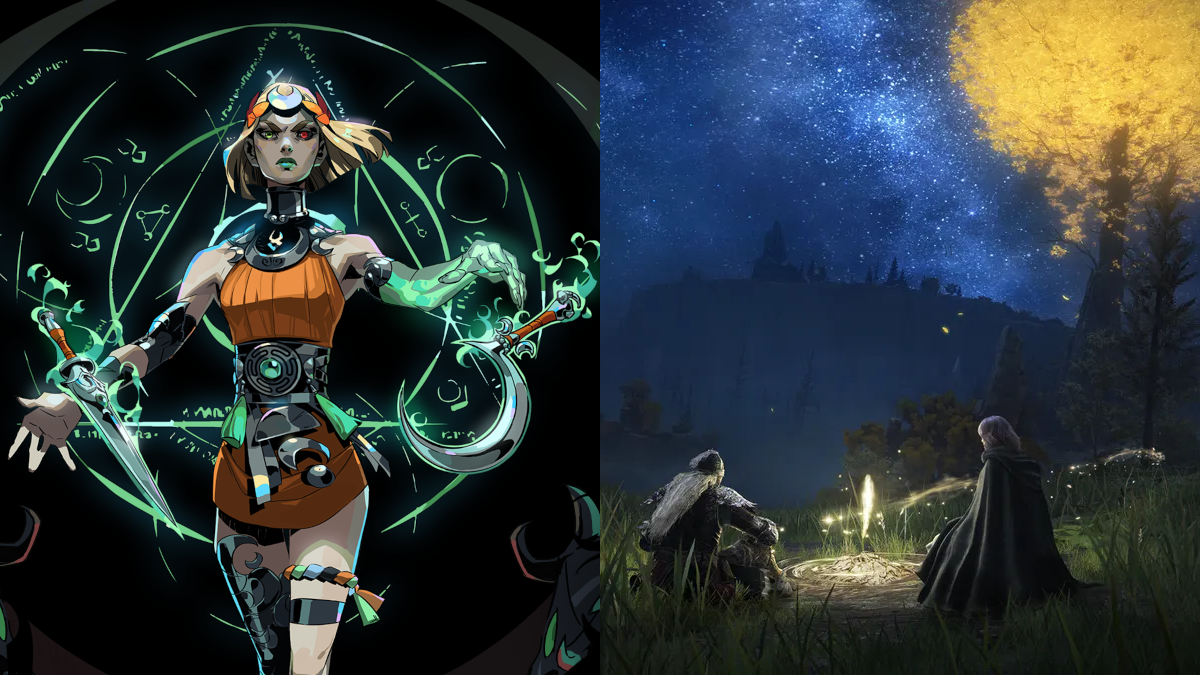The Game Awards came and went, crowning God of War: Ragnarök and Elden Ring as the year’s biggest and brightest, with ten awards between them. They duked it out for the title of Game of the Year, and though God of War could have conceivably won, the heavy favorite brought the trophy home to Japan instead. Elden Ring is also the only one I played, so I can explain why the game struck such a cord with players.
Before we get to that, I want to spill some ink about my personal highlight of the event: Hades II! The first announcement of the night, if I’m not mistaken, and a complete surprise. Not only was the news unexpected, but it’s the first time Supergiant Games has made a sequel to any of its games. Each of its previous releases garnered critical acclaim, but Hades took off in a way none of their previous games did, selling more than one million copies within days of its official release (it spent a couple of years in early access, garnering over 700,000 purchases within that period and over 300,000 within three days of its official launch).
For the first time, Supergiant Games not only had a critical darling, but a bone fide hit on their hands. It never occurred to me they would develop a sequel, since that’s something the studio never did, and because the story of Hades was complete. However, on a financial level, it makes sense to turn their one hit into a series. Plus, it’s a cool world (technically our world, through the lens of Greek mythology) populated with great characters and a fantastic combat system. This indy game didn’t become many publications’ game of the year for nothing, and I can’t wait to find out more about the sequel’s new protagonist, Melinoë, and her titan-slaying quest. Nothing that followed that night could compare to this simple trailer in my eyes, though I did appreciate the nods to my beloved Final Fantasy XIV.
Back to the Lands Between
What makes Elden Ring strong enough to deny Kratos and the Norse gods the GotY championship? At its core, Elden Ring is a Souls game. For the uninitiated, the Dark Souls series—and other games from Japanese developer From Software, commonly known as FromSoft—are punishing experiences who result in the player’s death more often than the typical fare and offer little in the way of explanation. The way forward has to be gleaned from the environment, cryptic item descriptions, and short interactions with the few NPCs who populate their worlds. Tellingly, the tutorial usually ends in a nigh-unbeatable boss, introducing players to the death mechanics if they’ve managed to survive up to that point.
The Souls games’ opacity and refusal to explain themselves make them particularly rewarding when players do figure out how to beat certain enemies or the grandiose bosses. As such, they have built a loyal following among those who are bored with games that traffic in too much handholding. Elden Ring is a Souls game in all but name and one other feature: its open-world nature. Other games of this ilk are usually linear, but Elden Ring takes the dungeons you might expect to find in the usual FromSoft experience and tosses them all over an enormous map. The results are breathtaking.
In particular, the game’s mysteries drove its popularity in the weeks and months following its launch as players sought to make sense of its systems, assemble the strongest builds, and discover its best-hidden secrets. We Tarnished are incentivized to try the different classes, weapons, and spells in search of the most powerful tools to tame the unforgiving Lands Between—and each other, when we invade other players’ instances. These are the same elements that drive people away from the Souls-like genre. Not everyone is looking for a challenge or has impeccable hand-eye coordination. What can be a fun puzzle to one player can amount to a wall their friend doesn’t want to bash their head against.
I haven’t made it very far in the months I’ve been playing Elden Ring, though I swear I will vanquish Morne Castle before long and move on with my quest. Still, what I’ve seen and what I’ve heard about the game is enough to convince me of its merits. It was no easy task for FromSoft to turn the Souls formula into an open-world game like Breath of the Wild, but they knocked it out of the park and set a high bar for all AAA titles to come. Truly, 2022 was the year of Elden Ring, and it was no surprise it won the award. One can only imagine the pressure FromSoft must be under to follow that up. I can’t wait to see how they—and Supergiant Games—meet this gargantuan challenge.
